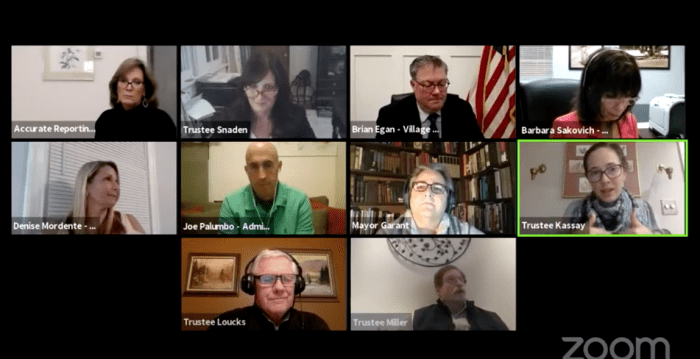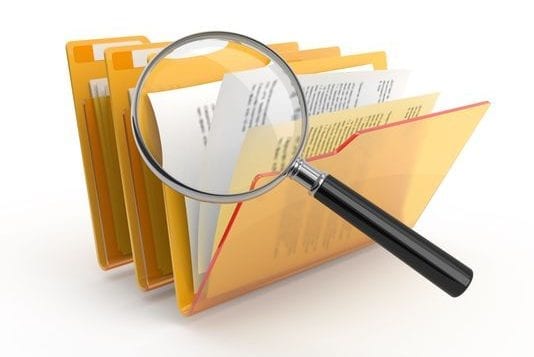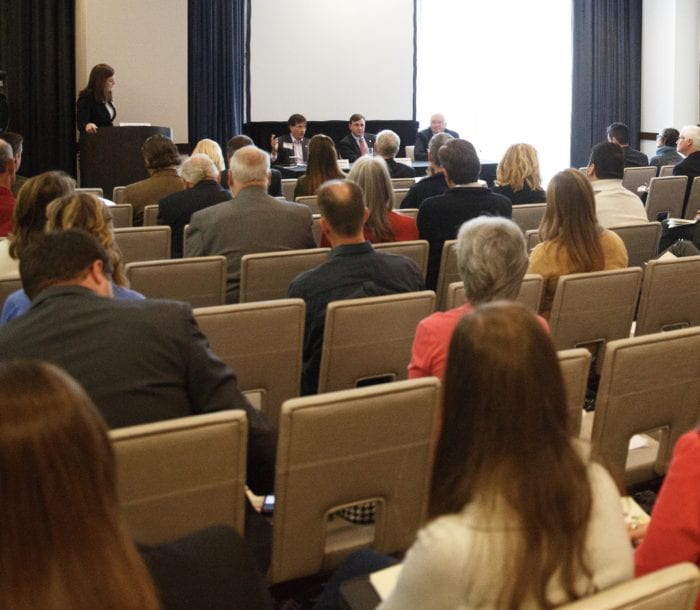Meeting videos available online from the Village of Port Jefferson are being taken down after 24 hours. Though as the village points to the lack of any law that mandates a government or agency keep recordings up for any length of time, some residents said it’s a matter of transparency as well as allowing more residents the opportunity to participate in village government.
Since the start of the pandemic, Port Jefferson has been livestreaming every board of trustee, planning, zoning and zoning board of appeals meeting live on YouTube to the village’s account. Those livestreamed videos were then left up as videos for the public to view.
Sometime within the last few months, those videos have started to be taken down after a 24-hour period. No public announcement was made that past videos would no longer be available.
Officials said the point of them using YouTube is not to set up a permanent library of meetings, adding the meeting minutes remain the official documentation of prior meetings.
The village board of trustees hosts meetings every other Monday, where one takes place in the afternoon around 3:30 p.m., which does not allow public comment, and another meeting in the later evening around 7 p.m., which does allow public comment. During the pandemic, residents were able to ask questions to the board via a chat window on the YouTube page, via email or by being invited to the board’s Zoom meeting. Currently, meeting videos from the past few months still exist on the village’s YouTube channel in several different playlists, but all are currently set to private and are inaccessible by the public.
Before the pandemic, Port Jefferson did not record any meetings either live or for viewing after the fact.
In comparison, the Town of Brookhaven allows people to view the bimonthly Zoom meetings and offer comments via email or through Zoom chat. Those Zoom meetings are posted to YouTube where each can be
viewed indefinitely.
New York State’s Open Meetings Law has changed due to the pandemic, eliminating the mandate that meetings need to be held in person and be available to the public. New open meeting guidelines do relay that an agency or authority “to the extent practicable and within available funds, streamed on such website in real time, and posted on such website within and for a reasonable time after the meeting.”
Village Attorney Brian Egan said neither Gov. Andrew Cuomo’s (D) COVID-19 executive orders nor the state Public Officers Law require a village to keep a perpetual archive of meeting videos.
“The YouTube videos were done to fulfill the requirement of the ‘real-time’ viewing requirement of the executive orders but were never intended to form a video meeting library,” Egan said via email. “Once the meeting time passed, the videos were removed shortly thereafter. The official record has been, and remains, the officially adopted meeting minutes.”
Egan added that once after the pandemic passes and the executive orders expire the village will look to return to in-person meetings and will no longer need to use YouTube.
Rebecca Kassay, the village’s most recently elected trustee, said she would like to see those videos become available again.
“While we have this temporary platform, why not utilize the benefit of increased accessibility?” Kassay said in an email. “We’re proud of what we do for the community; I’d like for more folks to be able to tune in at their convenience and see how local government is working for them. It’s always impressive to hear just how much my fellow trustees and the mayor have to report on a very wide range of Port Jefferson community efforts, from safety issues to the [Port Jefferson] Country Club to environmental protection.”







